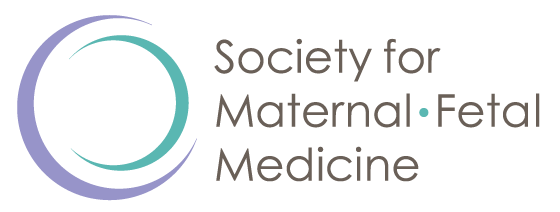
Vaccination Guide for Pregnancy
Get Vaccinated.
The Centers for Disease Control and Prevention (CDC) recommends that all adults receive certain vaccinations to protect against harmful and deadly infections. These recommendations are based on a person's age, health status, and certain risk factors.
Some vaccinations are routinely recommended during pregnancy, while others are delayed until after pregnancy. Other vaccinations might be recommended under certain circumstances after discussing risks and benefits with your pregnancy care provider.
Before Pregnancy
During Pregnancy
After Pregnancy

Before Pregnancy
Before getting pregnant, the Centers for Disease Control and Prevention (CDC) recommend the following:
Keep an accurate vaccination record: Sharing your vaccination history with your healthcare provider will help determine which vaccines you need before and during pregnancy.
Update your vaccines before pregnancy: Being up-to-date on vaccinations, like the measles, mumps, and rubella (MMR) vaccine, helps protect you and your child from serious diseases.
Avoid pregnancy for 1 month after getting the MMR vaccine: Out of an abundance of caution, it is best to avoid becoming pregnant, if possible, until one month after receiving the MMR vaccine and your immunity is confirmed by a blood test.
Experts agree that you need these 4 vaccines during pregnancy:
Influenza (Flu)
Pertussis (Whooping Cough)
COVID-19
Respiratory Syncytial Virus (RSV)
VIDEO: The Four Vaccines You Need During Each Pregnancy
Influenza (Flu) Vaccine
Pregnant people are at higher risk of getting very sick from the flu because pregnancy affects the immune system, heart, and lungs.
Getting the flu shot each year is the most effective way to prevent the flu.
Getting the flu vaccine protects yourself and your baby against serious illness. It’s best to get the flu shot before the end of October before the flu season gets bad.
Tdap
Tdap protects against whooping cough, which is also called pertussis. This illness can be dangerous for anyone, but it is especially life-threatening for newborn babies.
Until babies can get their first vaccination against pertussis at 2 months old, they’re at risk of severe illness from pertussis.
You can protect your newborn by getting Tdap between 27 and 36 weeks of pregnancy (the earlier in this timeframe, the better).
COVID-19 Vaccine
Pregnant people can become very sick with COVID-19 more often than people who are not pregnant.
Getting COVID-19 while pregnant can increase the risk of stillbirth and preterm birth.
Getting the COVID-19 vaccine during pregnancy can keep you from getting very sick with COVID-19. The vaccine has been shown to be safe and effective for pregnant people and their babies.
Respiratory Syncytial Virus (RSV) Vaccine
RSV can cause severe illness and lead to hospitalization in some people, particularly in babies 6 months and younger.
There are 2 options to prevent severe RSV in babies: you can either get a vaccine during pregnancy, or your baby can get an immunization anytime from birth up until 8 months of age.
Either option can help reduce the risk of serious illness and hospitalization in babies due to RSV.

After Pregnancy
For people who weren’t fully vaccinated before pregnancy, certain vaccines may be recommended right after giving birth.
To protect the health of both moms and babies, it's important for anyone who missed vaccines during pregnancy to get vaccinated after birth.
Postpartum vaccination protects moms from getting sick and passes antibodies to the baby through breastmilk.
Other Vaccine Recommendations During Pregnancy
When patients don’t have complete vaccination records or medical records, the CDC recommends that their pregnancy care provider work with them to figure out the best way to get caught up.
Below are the vaccinations that: 1) are not recommended during pregnancy, 2) might be recommended under some circumstances during pregnancy, and 3) might be recommended in less common situations after a discussion with a care provider.
-
Human Papillomavirus (HPV):
Delay until after pregnancy.
Influenza (LAIV):
Delay until after pregnancy. Note: This is a different type of flu shot than the routinely given one.
Read more about Influenza (LAIV)
Measles, Mumps, Rubella (MMR):
Delay until after pregnancy.
Varicella (Chicken Pox):
Delay until after pregnancy.
-
-
Zoster (Shingles):
Delay until after pregnancy
Pneumococcal Conjugate (PCV13):
No recommendation.
Pneumococcal Polysaccharide (PPSV23):
Not enough data to make a specific recommendation.
Tetanus and Diphtheria (Td):
Safe during pregnancy, but Tdap is preferred because it protects against pertussis.
-
Visit Recommended Vaccines for Adults to learn more about what CDC recommends for all adults 19 years of age and older.

Vaccine Assessment Tool
CDC’s Adult Vaccine Assessment Tool (below) provides personalized information that you can discuss with your heath care provider. You can also take the quiz on the CDC website. Disponible en español en el sitio de CDC.
Learn from Experts About COVID-19 Vaccines During Pregnancy
COVID Vaccination is Important for Protecting Yourself and Your Baby
Physicians, Nurses, and Pharmacists Agree: COVID Vaccination is Safe and Effective
Proteja a su familia con la vacuna contra el COVID
Protect Your Family with COVID Vaccination
COVID Vaccination Does Not Cause Infertility
Give Your Baby the Best Start in Life with COVID Vaccination
COVID-19 Vaccination: A Pregnant Patient's Story
Pregnant? Safeguard Your Health With COVID Vaccination
This resource was supported by the American College of Obstetricians and Gynecologists (ACOG) and the Centers for Disease Control and Prevention (CDC) of the U.S. Department of Health and Human Services (HHS) as a part of a financial assistance award totaling $15,000 with 100 percent funded by ACOG and CDC/HHS. The contents are those of the author(s) and do not necessarily represent the official views of, nor an endorsement, by ACOG, CDC/HHS, or the U.S. Government.
Last update: October 30, 2023








